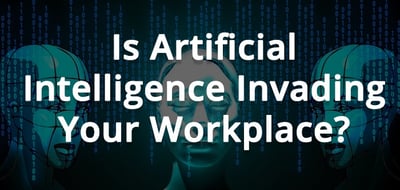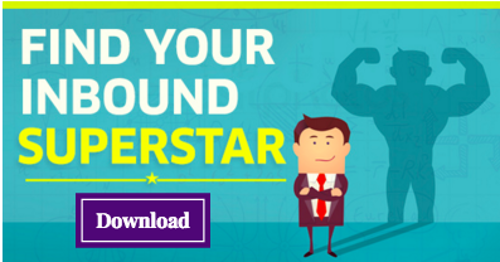What Is The Future Of Artificial Intelligence In The Workplace?
Google Home, Amazon Echo, Apple’s Siri. These are just some of the everyday examples of artificial intelligence you may be familiar with. A virtual personal assistant can play your music, answer a question, turn on your lights and remind you to do something, among many other abilities.

What Exactly Is Artificial Intelligence?
A simple definition of artificial intelligence (AI) is the development of a computer system that is able to perform tasks that would normally be done by people, and is modeled after human intelligence.
1.8 million people are using Amazon’s Alexa, and Alexa has over 3,000 skills, and is learning more. Investment in artificial intelligence grew by 746% from 2011 to 2015, reaching $2.4 billion, and increased about $1.5 billion additionally in 2016, according to Forbes.
What Impact Will Artificial Intelligence Have In The Workplace?
You can see how AI could be helpful at home, but how this technology will change the workplace, and how we live our lives, is the real question. AI can change the nature of work that is being done, getting rid of the need to do mundane or repetitive tasks, allowing us instead to focus on more creative problem solving and strategic issues. Employees that are responsible for routine manual tasks do, however, run the risk of being replaced.
All industries have the potential to be disrupted by artificial intelligence. ArkInvest predicts that 76 million U.S. jobs will disappear in the next two decades, shares Fortune. Now, this sounds overwhelming, and may have you nervous about your own career. However, like other periods of extreme technological advancement in history, the jobs that are lost are replaced by new types of jobs.
According to Newsweek, “Economists have shown time and again that automation helps overall standards of living rise, literacy rates improve, average life span lengthen and crime rates fall. After waves of automation—the Industrial Revolution, mechanization, computerization—we’re way better off in almost every way.”
In addition, recent research from Narrative Science found that for 80% of enterprise executives, AI makes workers more productive and creates new jobs. In the short term, AI can help people do their jobs better and save time. The long term effects are not as clear.
Experts disagree on how soon AI will actually reach its full potential, some say within a few decades, some don’t expect it for a hundred years or more. But in any case, the technology is heading in that direction. We will have to wait and see how it unfolds over the next few years before its impact can be better predicted. In the interim while we’re trying to find a new balance with this advanced technology, our lives and the nature of the work we do may change dramatically.
Aside from virtual personal assistants, artificial intelligence is already part of our lives. Think about how you can order food on an app or at a tablet in a restaurant, or use the self-checkout line at the grocery store.
Beyond these simple everyday tasks, AI has the potential to revolutionize medicine by helping doctors to diagnose and treat patients, conduct research and analysis to free up scientists to focus on other aspects of their work, and with self-driving cars transform how products are shipped across the country, among countless other applications.
How Can Artificial Intelligence Be Used In The Workplace?
Data
Artificial intelligence is able to process information and data faster than any human ever could. This also means that the quality of the data is improved, allowing employees to spend their time on understanding the data, instead of collecting or categorizing it, and use it to solve problems and make decisions. In business, the data obtained through AI could make measuring your KPIs easier, which is important for understanding how your company is doing and making data-backed decisions.
Automation
Automation can take care of certain tasks and save time (in marketing, automation software helps to streamline efforts and better target your leads). Salesforce.com has even recently introduced Einstein, and other marketing platforms are sure to follow.
Chatbots
Chatbots provide a solution for customer service, sales, a personalized shopping experience and more. They can help customers complete a purchase or answer their questions, without requiring a person to be on the other side of the chat. One of the most valuable aspects of chatbots is the potential for personalization, since this is what customers expect from your business.
According to research by Desk.com, more than 22% of millennials expect a response within 10 minutes of reaching out to a consumer brand. If your customers are tweeting you when they have a problem or leaving a comment on your Facebook post, you can now engage with them via a chatbot.
Virtual Personal Assistant
AI can take the place of a traditional assistant, by scheduling meetings, booking flights, maintaining a calendar and completing research projects. Google Home, for example, integrates with other apps and technology that you already use everyday, so the switch might not actually feel that extreme.
Social Media
There is so much being published and shared on social media each day, that even with listening tools and other technology, it is nearly impossible to stay on top of everything. AI can benefit your company by allowing you to better understand and follow the conversation that is taking place so you can then determine how to be engaged. It can also help you to identify influencers, see what topics people in your audience care about and therefore understand your customers better.
Kevin Maney writes for Newsweek that, “Successful people in the AI age will focus on work that takes advantage of unique human strengths, like social interaction, creative thinking, decision-making with complex inputs, empathy and questioning. AI cannot think about data it doesn’t have. It predicts what you want to see on Facebook based on what you’ve already liked.”
So while we’ll have to wait and see what the definite future of artificial intelligence in the workplace will be, humans will still have a role to play. Find your human for your Inbound Marketing Specialist role with our job description template! Just print it out!


